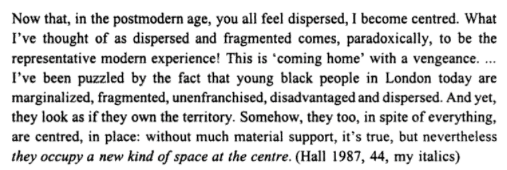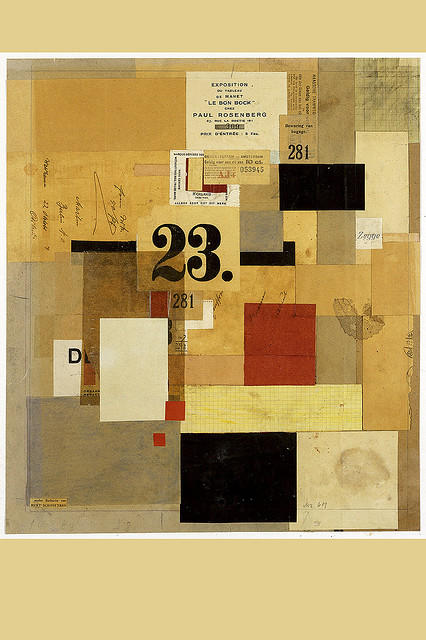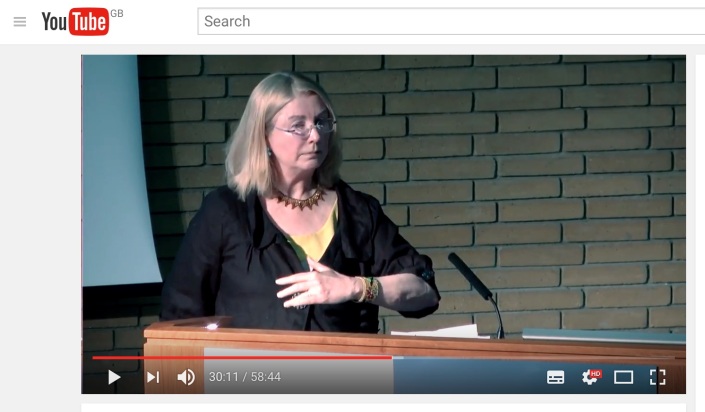Reading
Positionality Pit Stop … aka ‘Keeping it Real’


Blog Post by Raona Williams @REFITClass, an #EdDBlogger
The excerpt found in the picture above is taken from Stein’s (1998) interpretation of words from the late Professor Stuart Hall into the concept of a topic that is close to my heart. I could write an enlightening post on this but the best place for this is on my reflective blog
This blog post instead is marking the notable focus of ‘looking inward’ to relate positionality in my doctoral journey. After this weekend of being inspired by students and professionals sharing poignant information I now will begin working on identifying my own ‘academic positionality’ within my work.
I remember coming across the word ‘positionality’ amongst a range of other ‘new words’ when I first began my doctorate journey.
I dismissed the word as just being a long unnecessary group of letters to extend the word ‘position’ and continued my focus of loving to write about topical interests that enlightened me from academic reading.
Over the course of the last year or so, I have continued to read this ‘P’ word in journal articles. I have continued to hear the word being spoken out of mouths of academic mentors, lecturers, and a new collegiate I am loving gaining a closer allegiance with.
Up until today I still thought ‘POSITIONALITY’ was just a ‘pretty’ word to provide an explanation of why you think the way you think. Or why you do what you do’. I guess in a way it really is that. BUT… it is more.
Positionality in my eyes is linked to place – think of this – can you describe the position of something without relating to its location?
Positionality in research is linked to a mental location not just an explanatory or physical place.
It relates to WHERE and HOW the researcher feels they are placing or shaping their input into the research.
This is fundamental to the research question(s) they are seeking to answer.
Put it simply: If you are choosing a holiday destination – what shapes/makes/places you into the position to want to take the holiday in the first place?
This weekend concept of positionality has become a clear and important component to research and understanding yourself really and where you are in ‘society’.
I honestly thought I could actually complete my doctoral research staying quite neutral and as a ‘fly on the wall’ looking in. Now I cannot dream of doing this – I need to fly to my location, state my place and ‘keep it real’ 🙂
Since completing a small pilot study linked to my doctoral research (empirical research as it is also called) and after this weekend, I have recognized the importance of stating your influence as a doctoral researcher to show how it affects your work – it is also termed, your ‘researcher bias’. Floyd and Artur (2012) relates the concept of positionality to the resultant impact being an ‘inside or outside researcher.
Not stating the inside/outsider researcher aspect to your work affects the validity to your critical argument. I believe it leads the reader into a false truth.
Similarly, not revealing your positionality can be even worse – this is because if the reader does not know where you are coming from – how on earth can they work out what you are trying to say and where you are going with your argument and point?
So I have reached a significant pit stop in my doctorate journey. In fact, I will go further. I am driving to a showroom and changing my vehicle all together! I feel like I’ve been in my sports car for a while now – loving the cruise and flossing in my ride into the doctoral sunset..but now I’m going to drive with an upgraded and different model, altered spec, greater purpose and to some areas where the new terrain may get rough!
I’m now embarking on revealing with a self made route-planner which sections of my life experiences, knowledge base and exposure to society have led me to ‘the positionality bias of my epistemology’ -TRANSLATION?….
I will now work on making the path clear in showing how my ‘world’ has shaped what/how/why I want to answer my research questions(s)
I am now excited about DISCOVERING MY POSITIONALITY: fine-tuning my research, reviewing my reflective diaries, unpicking my research passions and interpreting/uncovering my life and world influences in purposeful relation to my doctoral research.
References
Alan Floyd and Linet Arthur (2012) Researching from within: external and internal ethical engagement
The “Thing-ness” Problem
Hesse-Biber, S. (2015). Mixed Methods Research: The” Thing-ness” Problem. Qualitative health research, 25(6), 775-788
Welcome to the new academic year. I can’t help feeling that advocates of mixed methodology remind me of the united reformed church. Set up to transcend the binary between catholic and protestant, they simply add another division rather then a conclusive reconciliation. Mixed methodologists might reasonably claim to be pragmatists rising above the paradigm wars afray. This stance does not in itself mean that the deep differences surrounding methods and methodologies are resolved. It means that a new dimension has been added to the debate. Or rather, that some quite traditional ways of working have been rebranded and added to the debate.
Writing from the margins – a few left over thoughts from (not quite a) week end 2 #HullEdD

The quote below is from something a read a while ago. It is the opening sentence of a paragraph, that has been floating around n my head for months. I have never quite found a moment to refer to it.
‘The idea of objects having a social life is a conceit I (Appadurai) coined in 1986 in a collection of essays titled The Social Life of Things. Since then, I (Appadurai) has have continued to be engaged with the idea that persons and things are not radically distinct categories, and that the transactions that surround things are invested with the properties of social relations. Thus, today’s gift is tomorrow’s commodity. Yesterday’s commodity is tomorrow’s found art object. Today’s art object is tomorrow’s junk. And yesterday’s junk is tomorrow’s heirloom.’
Appadurai, A. (2006). The thing itself. Public Culture, 18 (1), 15.
There are some things you read that for some reason capture your imagination. Perhaps they are well phrased or present an unexpected line of argument. I have not read very much of Appandurai’s work but I liked this idea of ‘things’ having a social life – dependent on the social transactions they are caught up in. I like the idea of the social life of which they are part having the capacity to transform them.
I connect this to the idea of written notes scribbled in the margins of what you are reading. These tiny little thought pieces – or perhaps conversations between you and the writer of a text – can be transformed into a paragraph and illustrated. They are of enormous value. Not only do they plot the development of your ideas from doctoral candidate to post-doctoral researcher – they represent your personal engagement with a text. They may well be junk (if treated as such), but junk if carefully collated might well of more value then you realise. More importantly, they have a name.
While reading Fenge (2010)

Lee‐Ann Fenge (2010) Sense and sensibility: making sense of a Professional Doctorate, Reflective Practice: International and Multidisciplinary Perspectives, 11:5, 645-656
The frequent way of framing the professional doctorate – in contrast to a doctorate that does not carry a qualifier – is that it is more concerned with ‘practice development and change’ than with ‘pure’ research’. The indication being that research concerned with ‘practice and change’ introduces an impurity. There is surely more than a faint echo here of the academic vs vocational divide.
What troubles me most about this is that when this is used in reference to education, it is hard to see how the distinction holds. Unlike sociology, psychology or mathematics – education is an applied field of study. It draws on various disciplines but in itself is non-disciplnary. What then in a field like education might be considered as pure research and what night be considered as practice development?
In addition, it treats ‘practice development and change’ as something that is unproblematic. The EdD assumes those who participate in it are practitioners, professionals who are working as teachers, managers or college governors; this is its defining feature. But the insistence that their intellectual output has to be restricted to ‘practice development and change’ is to so severely narrow its purpose that the qualification becomes meaningless at doctoral level. ‘Practice development and change’ places the doctoral researcher in an untenable position. It treats the practice as something that needs to be developed; it treats change as something that is in the gift of the professional. It divorces the EdD researcher from educational research. Both stances implied by ‘practice development and change’ are derivative of policy assumptions. The perpetual insistence that practitioners are better, bigger, improved, assured and inspected. That headline figures must inexorably rise until everybody participates in ubiquitously perfect practice. To place yourself ‘against perpetual practice development and change’ is to place yourself beyond a normative framework that confers a valued professional status. Who celebrates the mediocre. Who wants to be ‘ok’. Who gets the power of definition?
These are necessary questions for the doctoral researcher; they are nuisance questions for the professional seeking ‘practice development and change’.
Sociologist Howard Becker points out If you want to write about what’s going on – you have to really know what’s going on. This is good old fashioned sociology; people don’t live their lives according to a series of pre-defined variables. My suggestions that the EdD is uniquely positioned to make a contribution to knowledge about education, not just practice. Becker based his sociology on his experience of being a musician. If you are going to write about art, it makes sense to know something about the doing of Art. If you want to write about education, it pays to know something about the doing of education.
